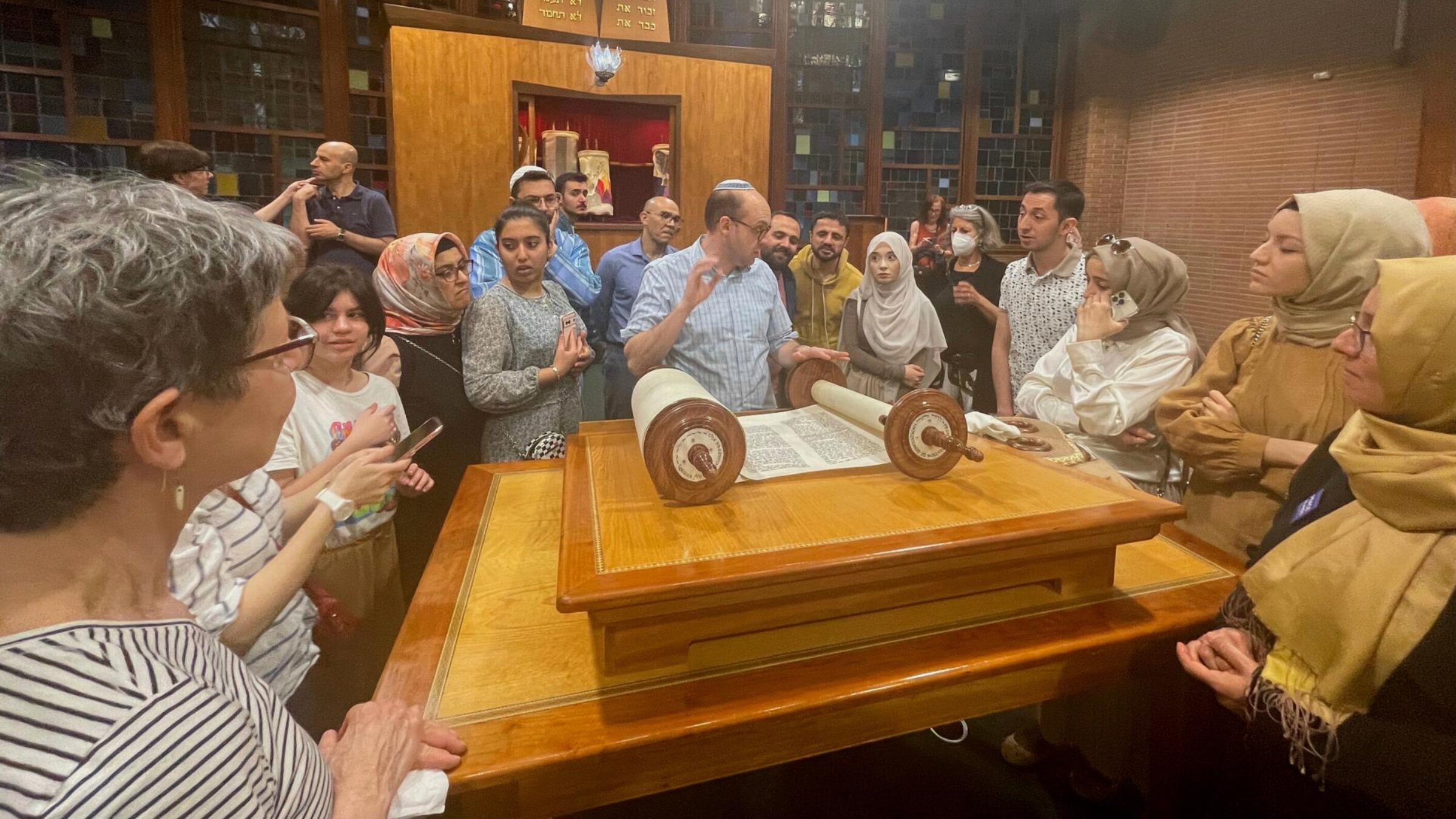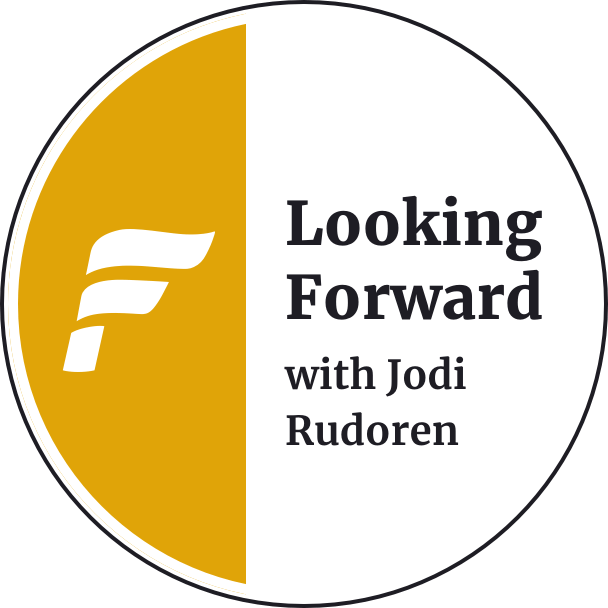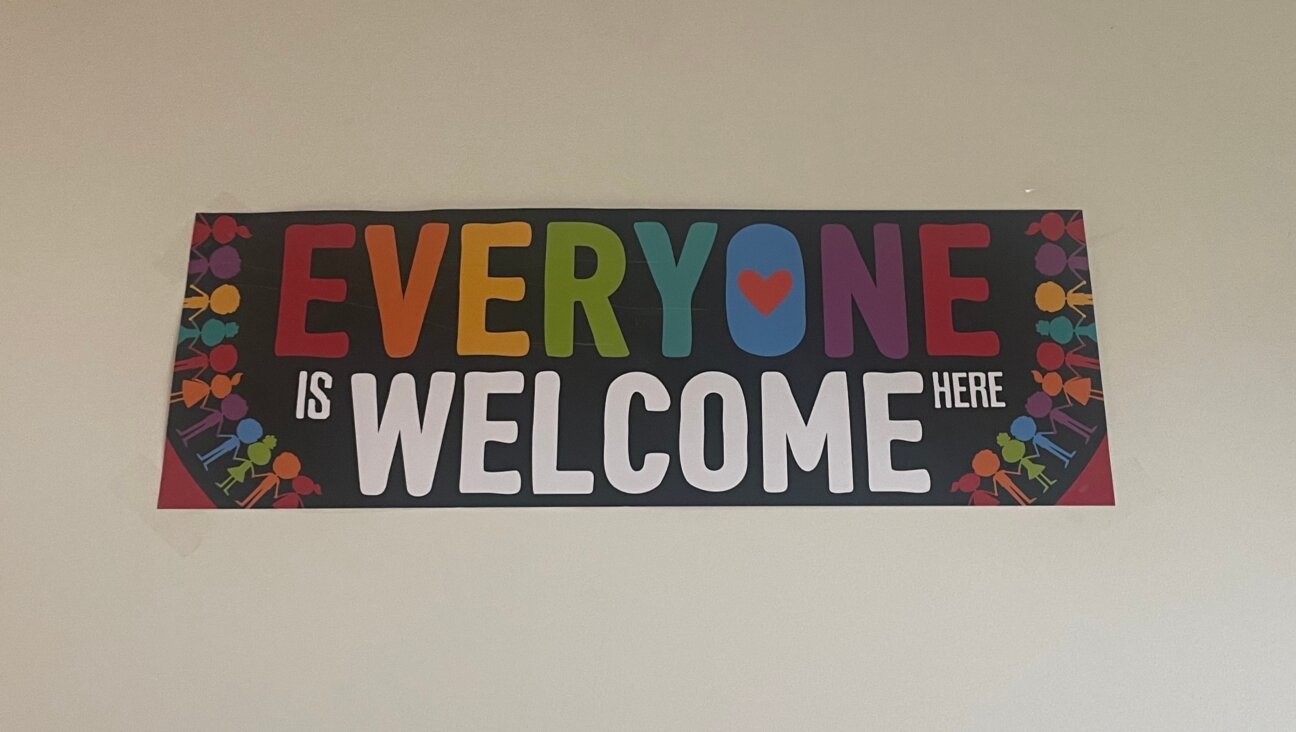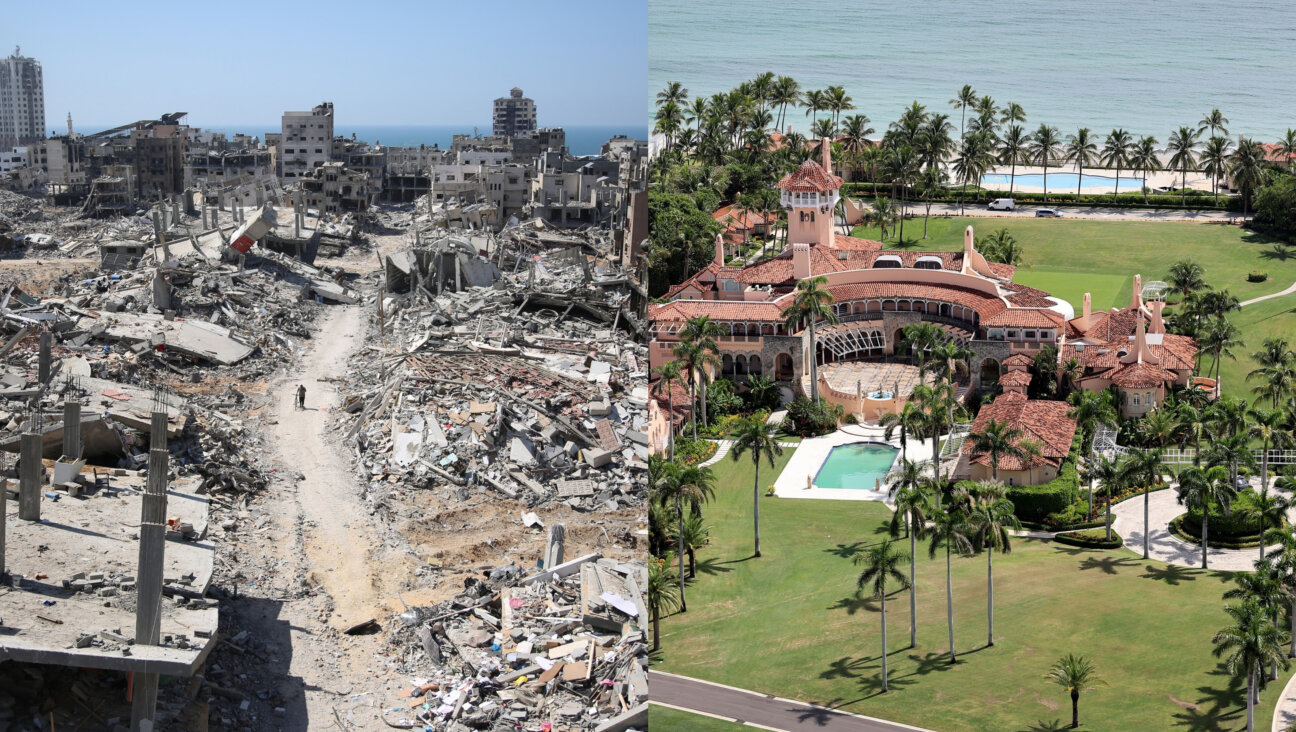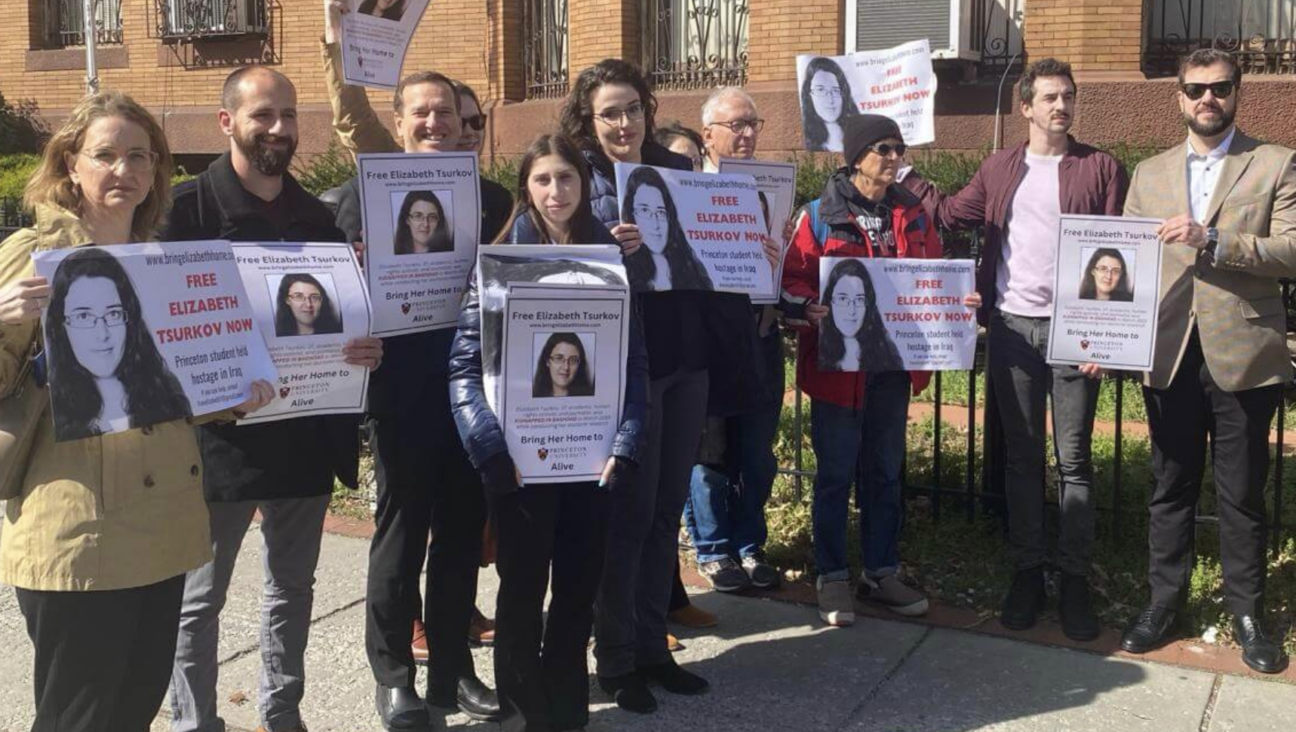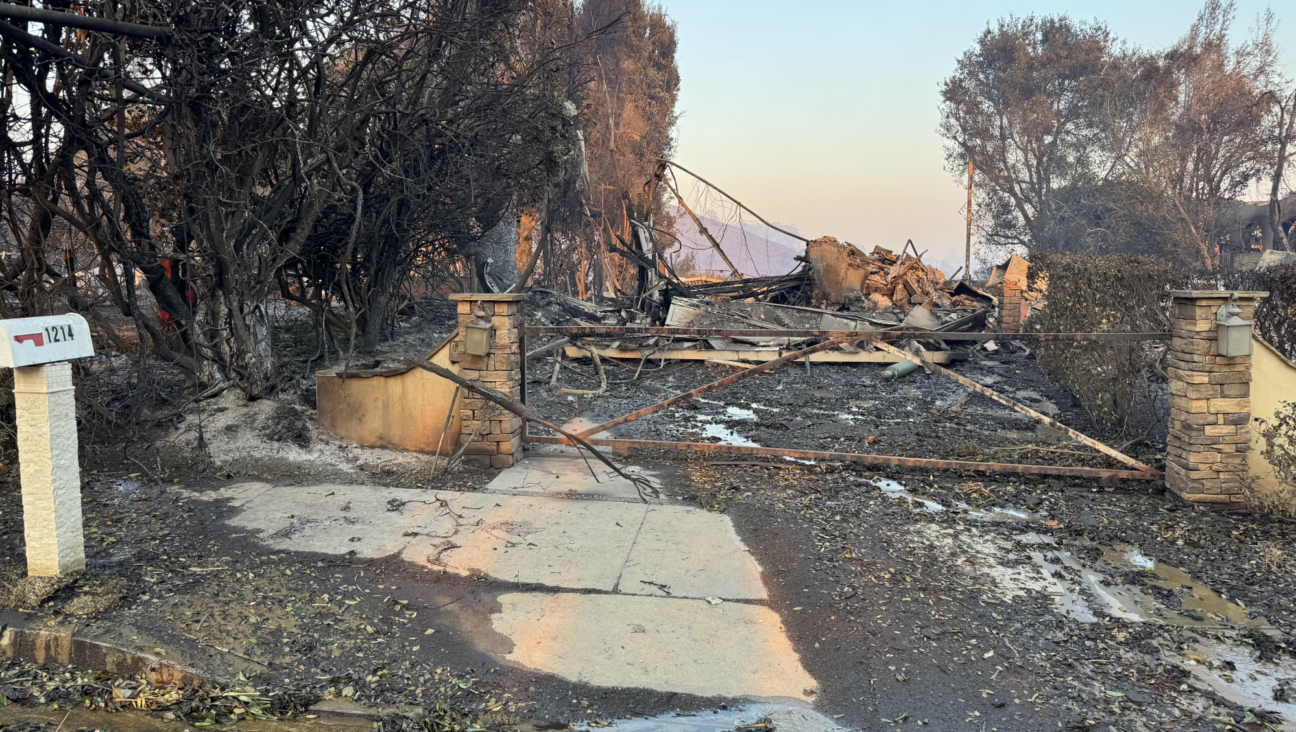It’s a little awkward, this “Breadfest” idea. Our guests from the Peace Islands Institute — a Muslim group of mostly Turkish immigrants that promotes interfaith dialogue — had not had a morsel or a sip since sunrise. Many of us Jews, meanwhile, had spent the last eight days in holiday-gorge mode, bereft of bread but more than making up for it with matzo balls and matzo brei and macaroons. So we let them at the buffet first.
As we dug into the most delicious lentil soup I’ve ever tasted, my friend Peri Smilow and I chatted with a 28-year-old civil engineer named Saja, who grew up in Irbid, a city of some 2 million in northern Jordan.
Saja told us that she could not find an engineering job near her home after finishing university. A couple of years later, she won the U.S. visa lottery — and landed in New York just before it was gripped by COVID-19.
After a lot of lockdown loneliness and months working as a cashier in a bodega and a clerk in a medical office, Saja finally got a civil engineering job — in New Jersey, which is how she happened to end up at “Breadfast.” It was the first time she’d ever set foot in a synagogue, and she told Peri she’d been a bit worried about it.
But soon we were in something of a comparative-theology conversation. It started with what Saja called “messengers,” meaning prophets. She noted that Muslims honor Muhammad above all but also Jesus and Moses and the patriarchs. We explained that Jews don’t really see any of the prophets as adjacent to God in a parallel way to how we understand that Muslims consider Muhammad or Christians think of Jesus.
Peri said she sees the Torah itself more in that role —“we are a people of laws,” was how she put it — which was not an analogy I’d have thought of, but not necessarily one I disagreed with.
Then we got into the afterlife. Saja confirmed our sense that Muslims see everything on earth as a precursor to heaven or hell — that doing good and avoiding sin and praying and fasting on Ramadan is all about securing that future for your soul.
Peri and I struggled a bit to explain Jewish beliefs about heaven and hell and the world to come — because there are so many different Jewish ways of thinking about these things, and also because it’s far less of a focus in our Reform Judaism.
Then I shared something I had learned only during these recent weeks of reciting kaddish. There is a Jewish concept called gehinnom, which is often translated as hell but may be more akin to purgatory. “A place of torment for the wicked after death,” is how the Jewish Virtual Library puts it. Having one’s children recite kaddish is said to redeem such a person from gehinnom and allow them to, essentially, get to heaven.
And here’s a lovely part: It is said to take 12 months to redeem the most severe sinners, so our tradition of honoring our parents with 11 months of daily kaddishes is a way of signaling that, of course, they would never need the full year’s worth.
I asked Saja whether Muslims add any special prayers to their liturgy after a loved one dies. She explained Janazah, the funeral prayer, which is said in the presence of the dead body before burial, to seek forgiveness for them and all dead Muslims. But she also told us about her father’s sister, who died in August, who was sweet and kind and “never bothered any person in her whole life.”
“Until today, I remember her every single night,” Saja said. “Every night I just say, ‘May God make you among the people who goes to heaven.’”
That’s about when my rabbi, Marc Katz, came over and asked if I wanted to say kaddish.
